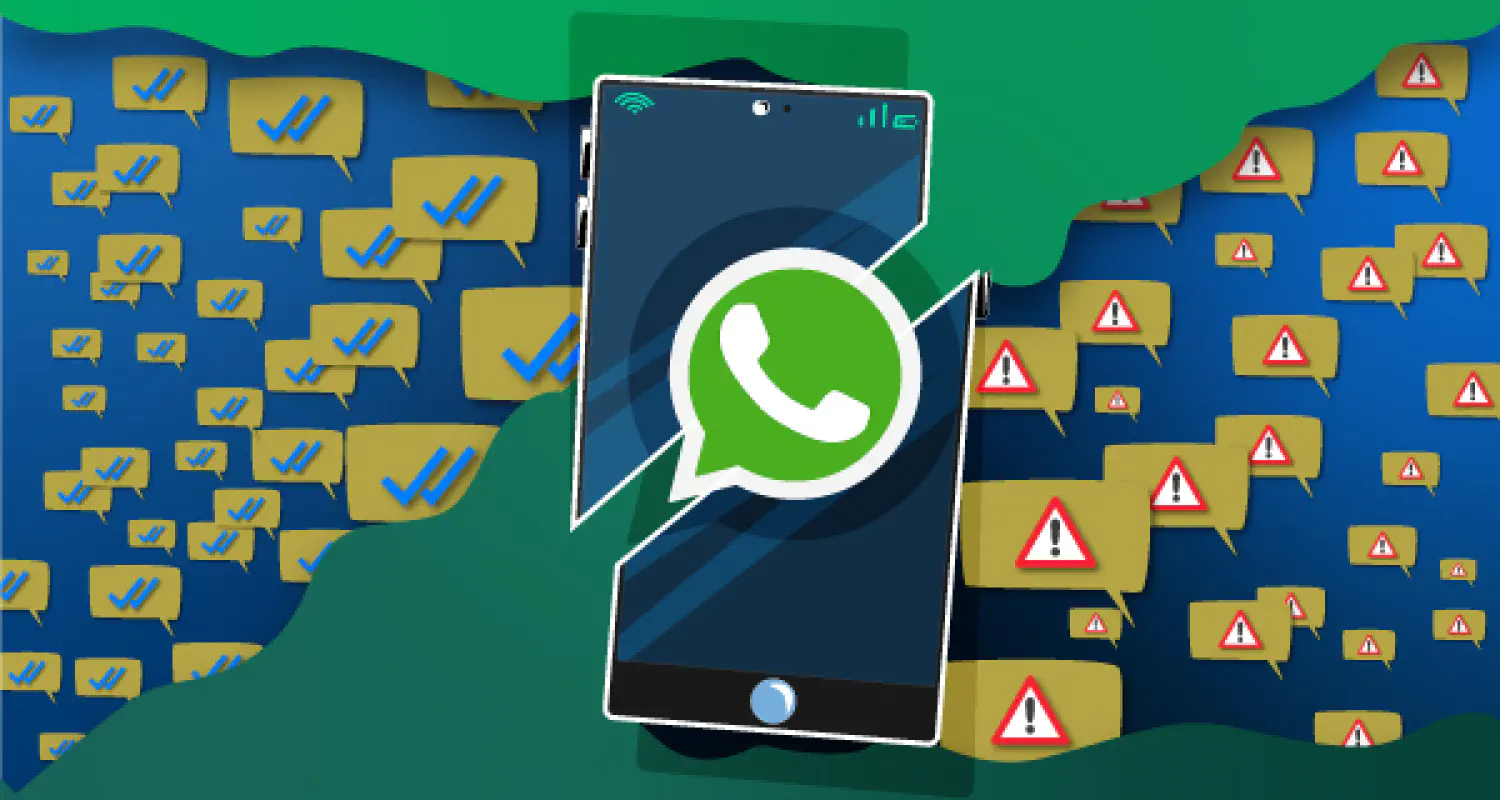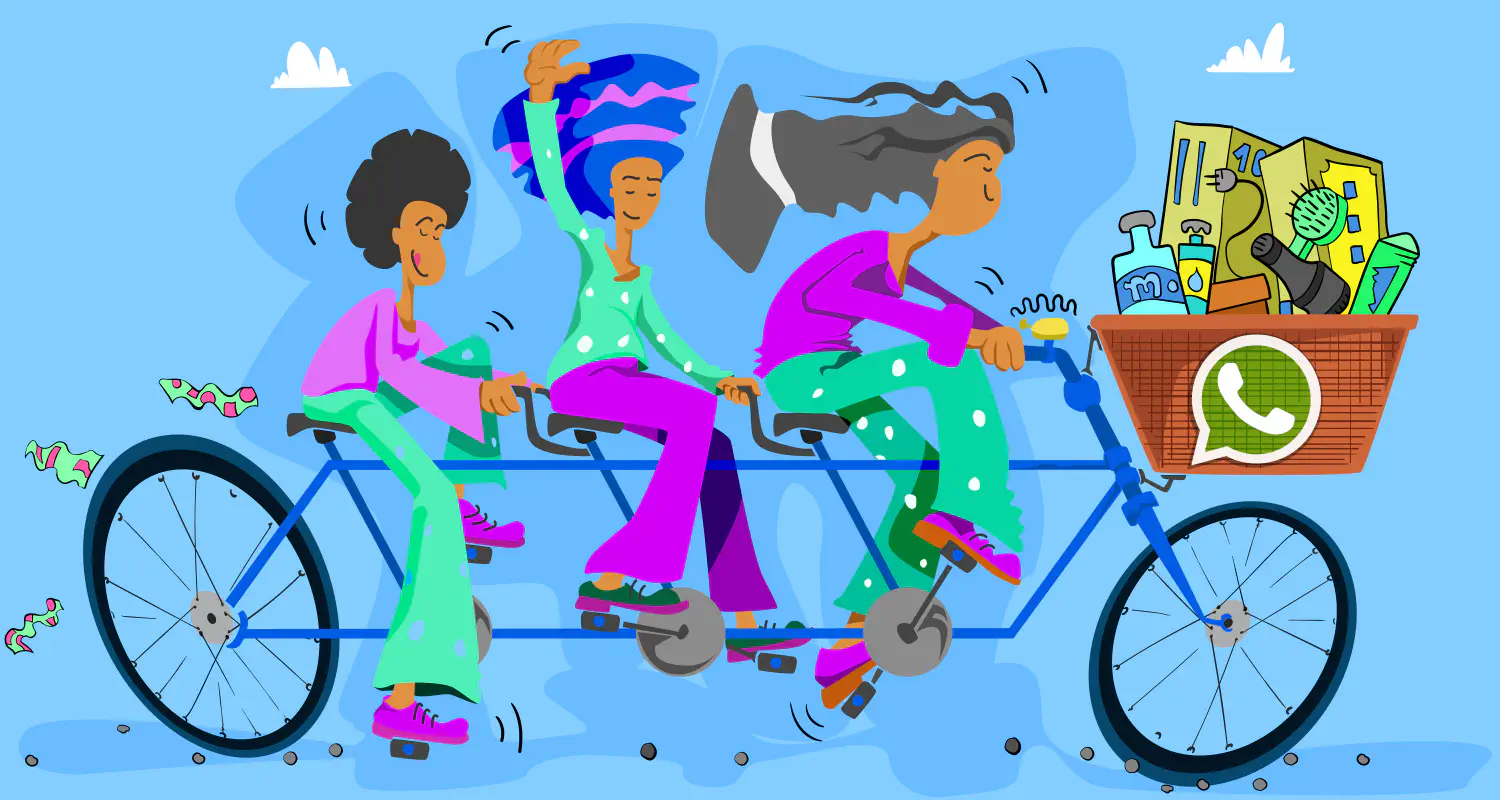WhatsApp vs SMS: Which One Is Better for Your Business?
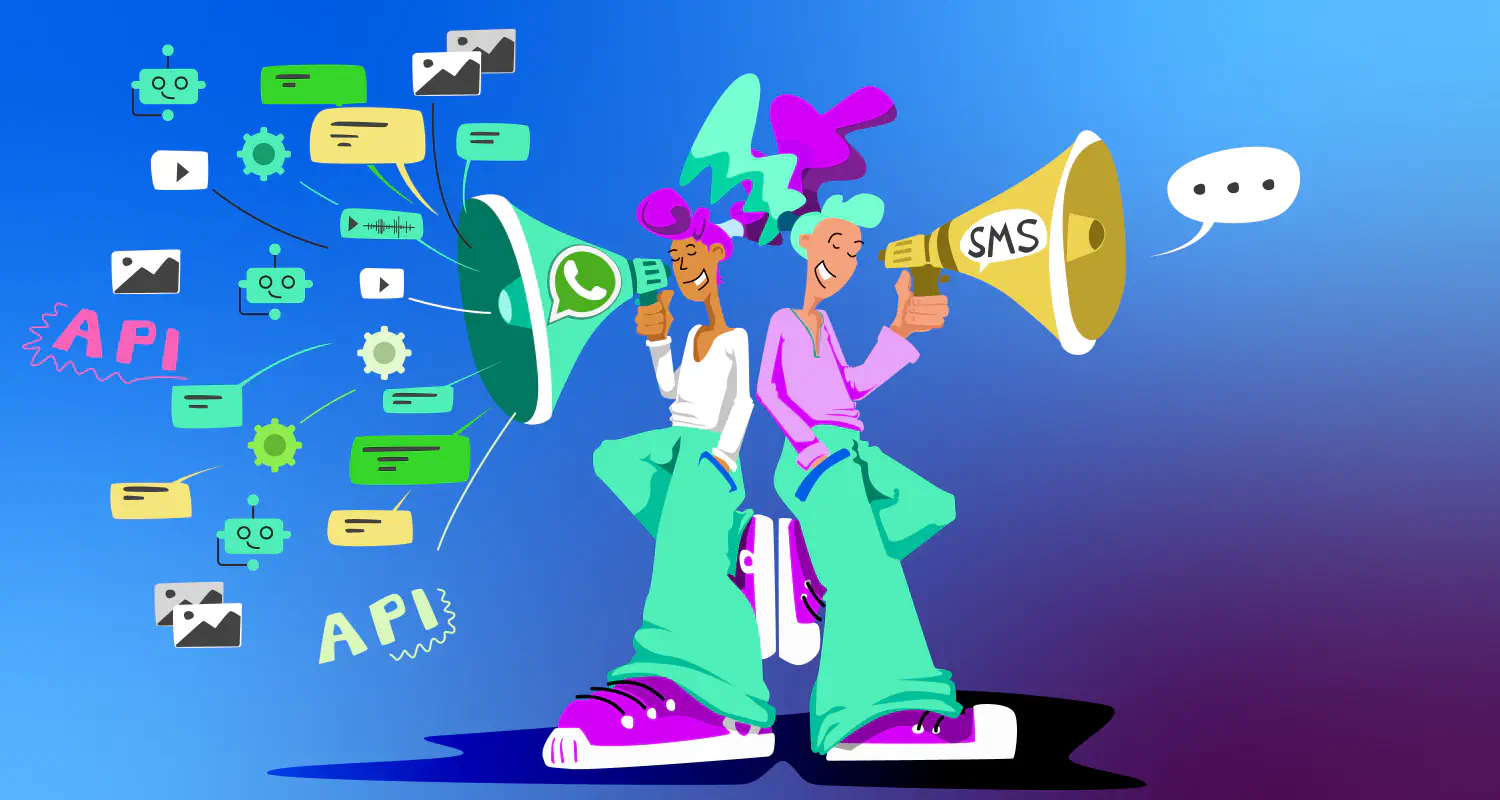
SMS has long been the go-to communication method for businesses to communicate with customers. It offers a direct and reliable channel for sending time-sensitive information, notifications, promotional messages, and more.
WhatsApp on the other hand is the cool new kid on the block that has revolutionized how businesses and customers interact. With its modern interface, extensive features, and widespread popularity, WhatsApp has quickly gained traction as a business’s preferred marketing tool.
Here are some key points to consider when comparing WhatsApp and SMS for business purposes:
WhatsApp vs. SMS: Features
When comparing SMS and WhatsApp, it becomes evident that WhatsApp offers a range of marketing features surpassing traditional SMS’s capabilities. Here’s a closer look at the features of both platforms:
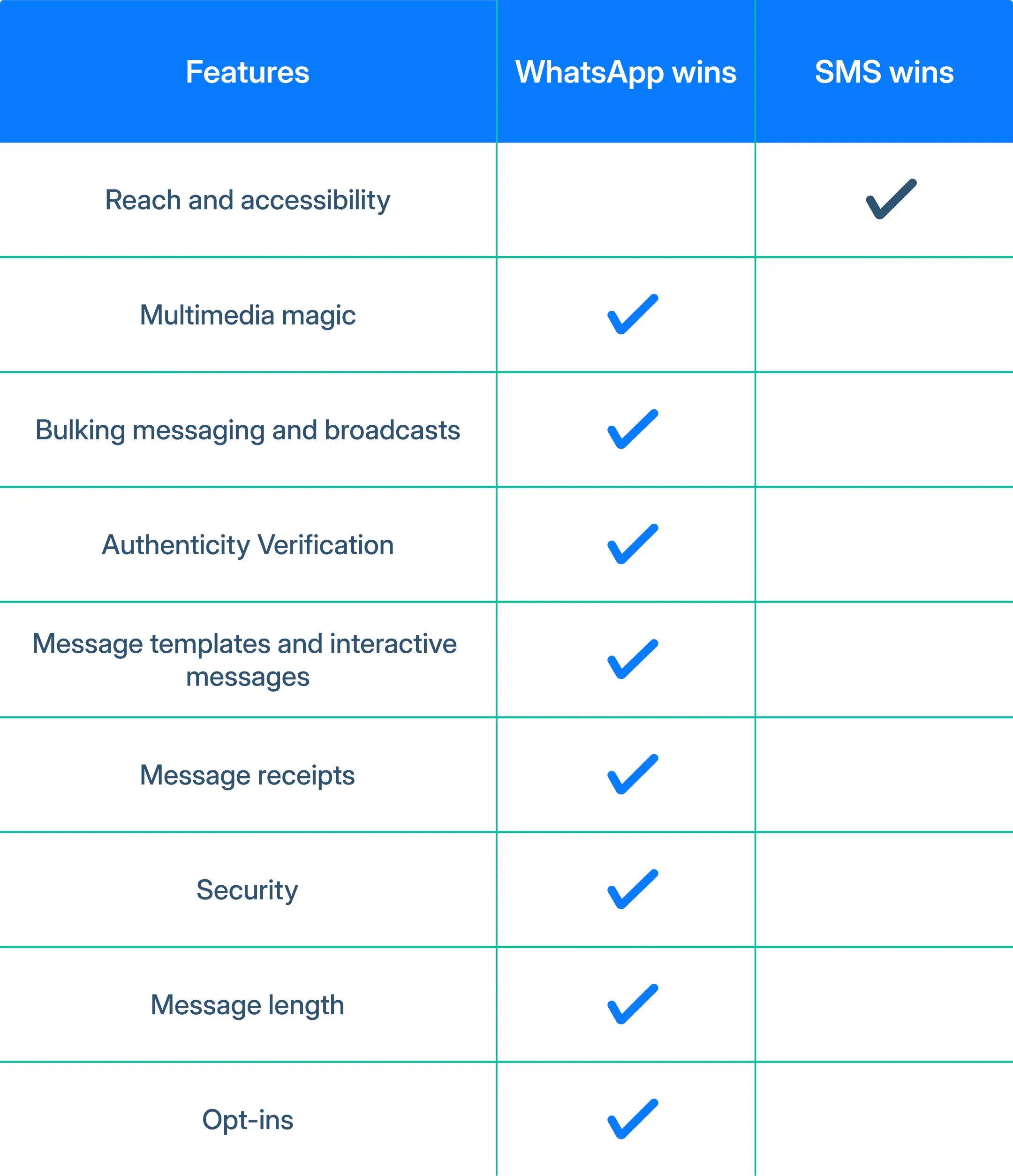
Reach and accessibility
SMS has a broader reach since it is available on virtually all mobile phones, including basic feature phones. This makes it accessible to a larger audience, including customers who may not have smartphones or access to the Internet.
On the other hand, WhatsApp requires a smartphone and an internet connection, which, in today’s day and age, is not an issue anyone should be worried about.
Regarding popularity, WhatsApp is the most popular messaging app with two billion users worldwide, which makes this single victory for the SMS a bitter-tasting one.
Multimedia magic
SMS falls short in supporting multimedia content such as images, videos, or audio files, which significantly limits the visual elements of communication.
In contrast, WhatsApp excels in leveraging various message types, enabling users to seamlessly share and enjoy the richness of multimedia content within their conversations.
Integrated product catalog
The product catalog is one powerful feature that sets WhatsApp apart from SMS. This functionality lets you create and showcase your products or services within the WhatsApp platform, providing customers with a seamless and immersive shopping experience.
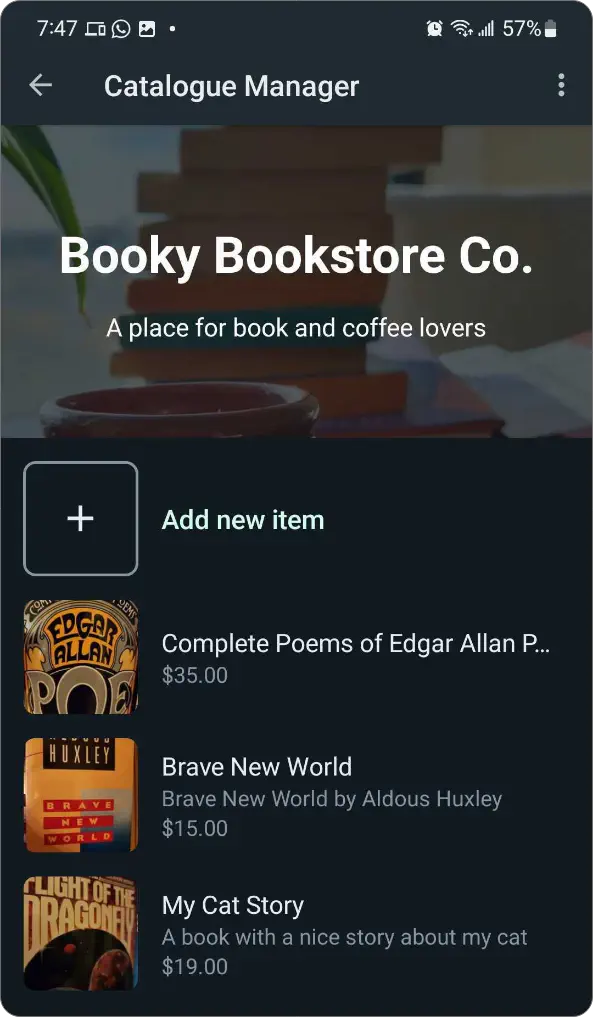
With WhatsApp’s product catalog feature, you can upload and organize your product listings, complete with detailed descriptions, pricing information, and high-quality images. This enables customers to browse the catalog, explore different offerings, and make informed purchase decisions within the app.
Bulk messaging and broadcasts
WhatsApp’s global popularity makes it an excellent platform for bulk messaging, especially when comparing engagement rates. With an impressive 70% engagement rate, WhatsApp allows businesses to effortlessly share catalogs, promotional videos, and other visually appealing content with segmented audiences. In contrast, SMS broadcasts tend to yield a significantly lower engagement rate of 44%. The interactive nature of WhatsApp content further enhances overall engagement, making it a preferred choice for businesses seeking higher audience involvement.
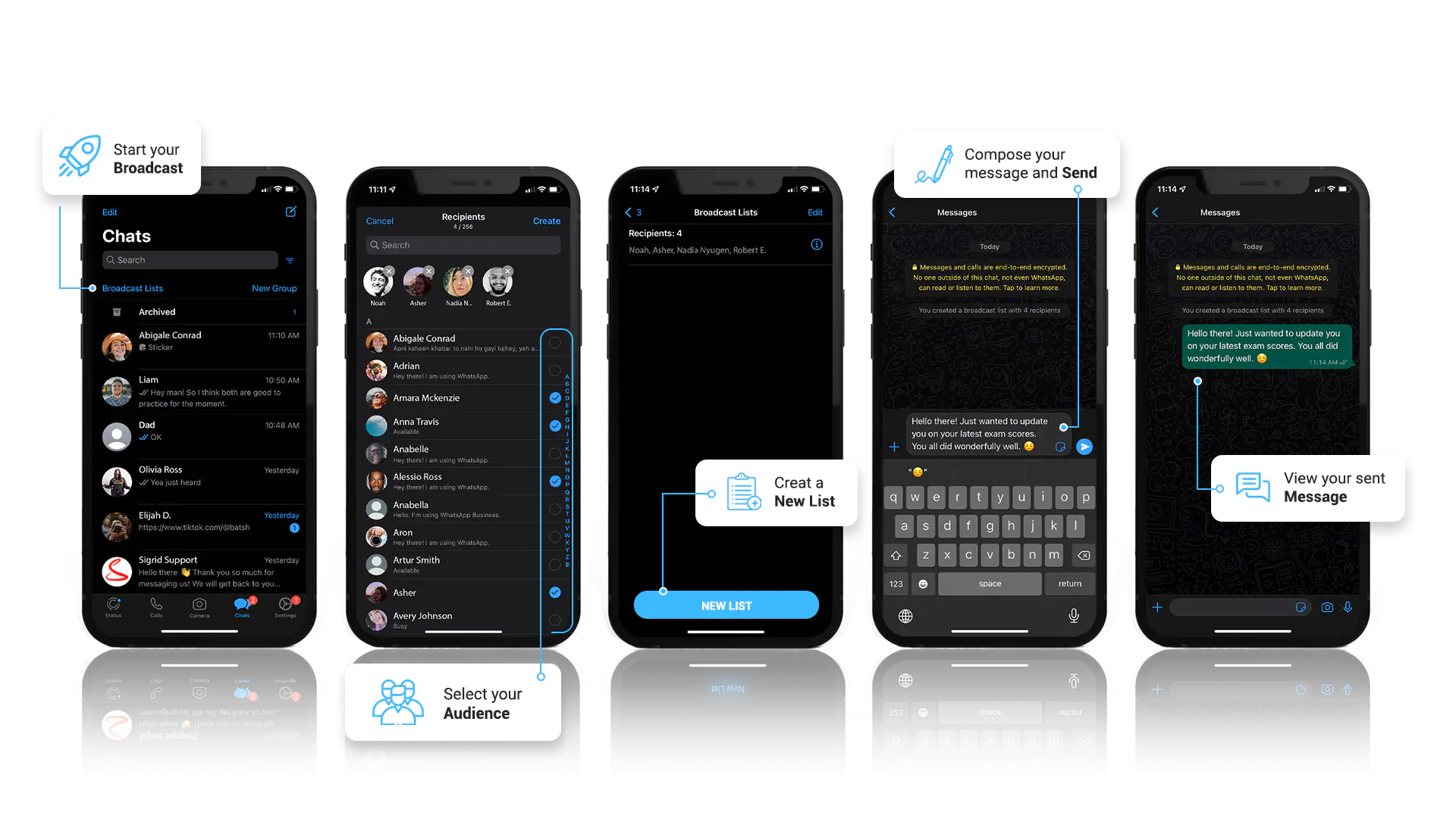
The WhatsApp Business app limits broadcast lists to only 256 contacts. However, those using the WhatsApp Business Platform/API connected to a shared WhatsApp inbox like Rasayel, can broadcast messages to an unlimited number of their customers.
Authenticity Verification
Scammers impersonating businesses can be a concern for customers. WhatsApp Business Platform/API users can acquire the WhatsApp green tick, which signifies authenticity, provided they meet the requirements set by WhatsApp. This verification process helps businesses establish trust with their customers and minimizes the risk of falling victim to fraudulent messages.
Message templates and interactive messages
Message templates and interactive messages are powerful features of the WhatsApp Business API that enhance communication between businesses and customers. Message templates are predefined message structures you can create and use for specific scenarios, such as order confirmations, appointment reminders, or shipping notifications. These templates help standardize communication, ensuring consistent and accurate information delivery.
If you’d like to use interactive messages like the below in your WhatsApp communications, contact us.
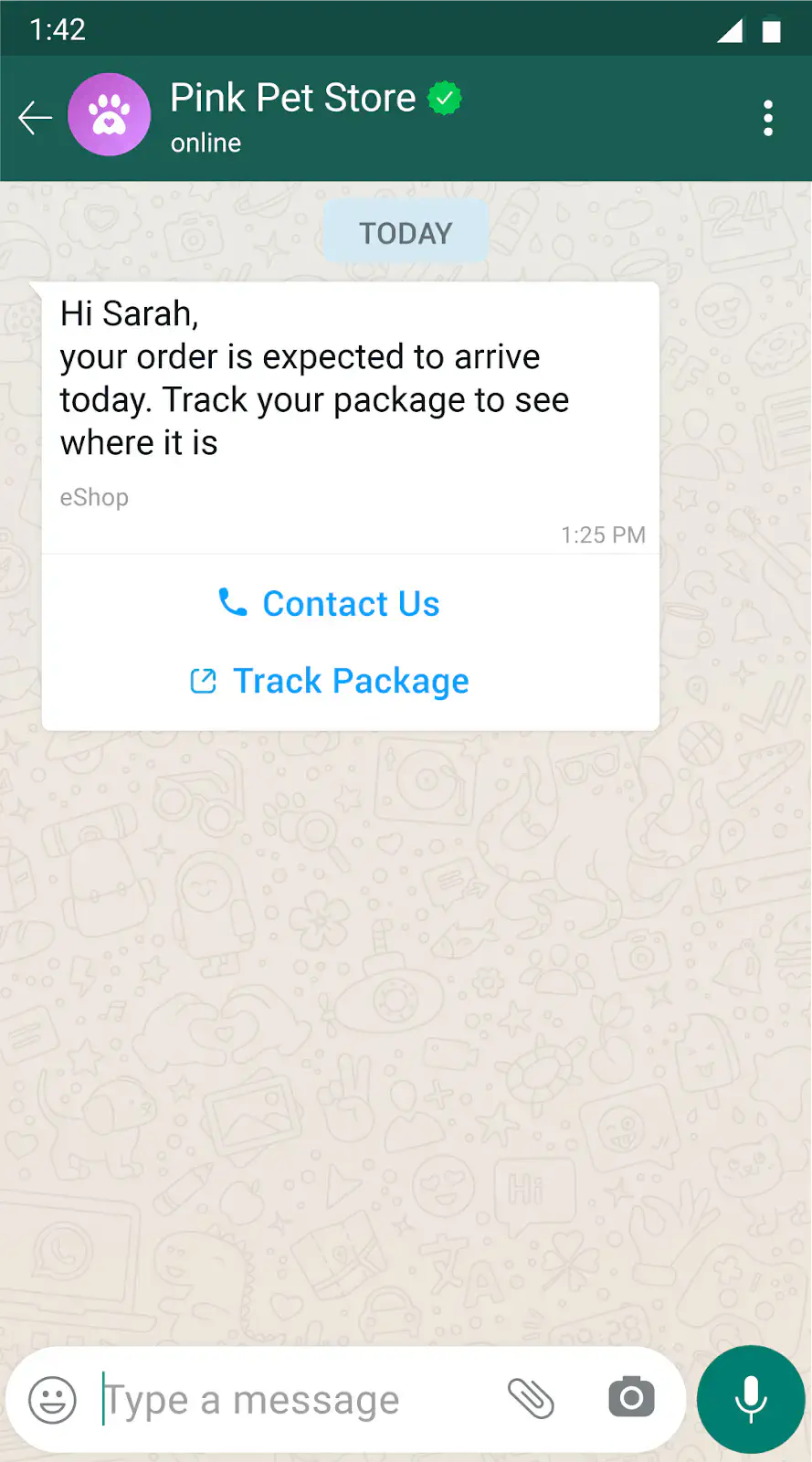
On the other hand, interactive messages enable businesses to provide customers with options, making the conversation more efficient and engaging. For instance, you can create interactive menus, surveys, or forms that allow customers to select preferences, answer questions, or provide feedback.
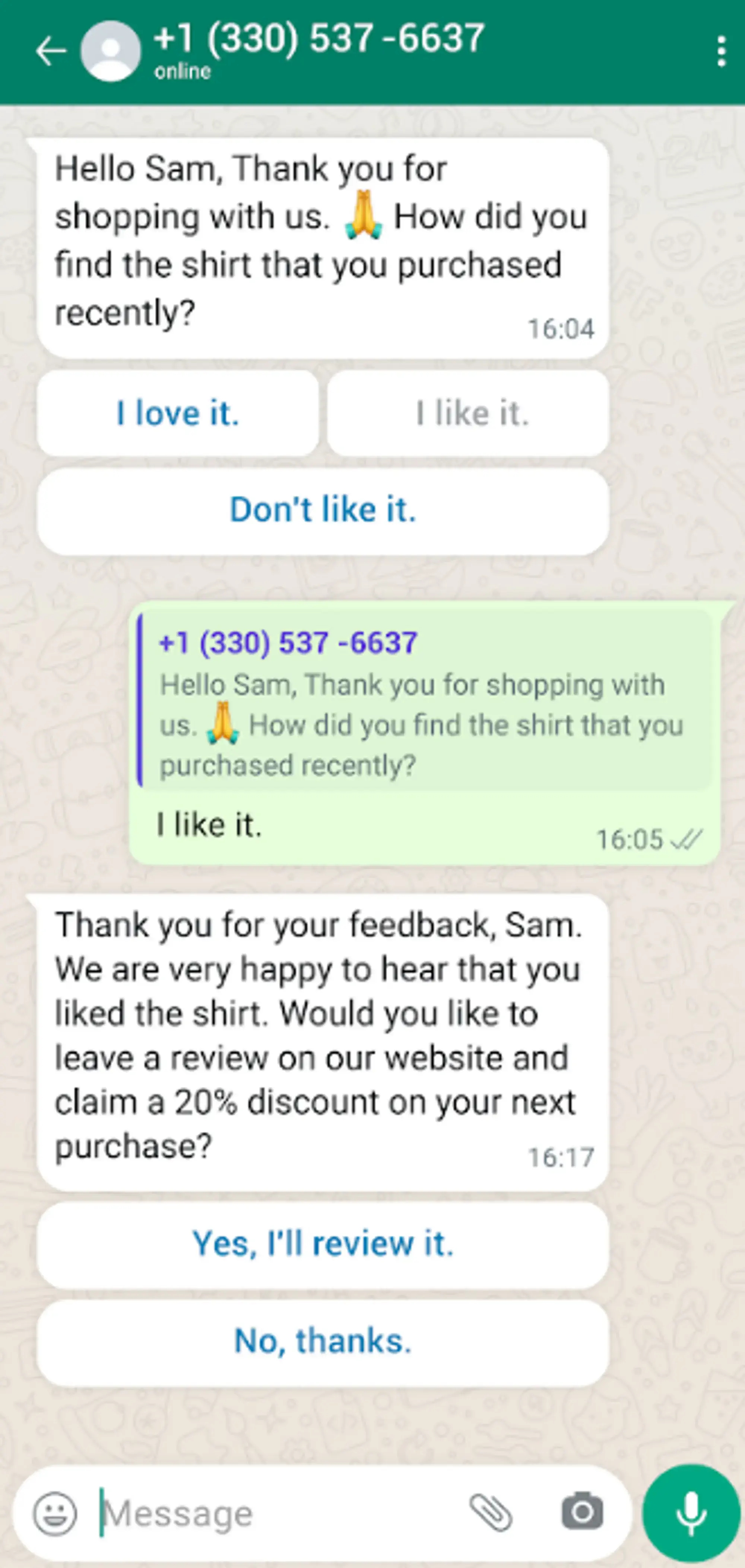
SMS doesn’t offer any of these engagement booster features.
Message receipts
One significant difference between SMS and WhatsApp is the availability of message receipts. While SMS does not indicate whether recipients have read the messages, WhatsApp offers received and read receipts. This feature is valuable, as it helps you gauge customer engagement and decide whether to follow up with customers or not.
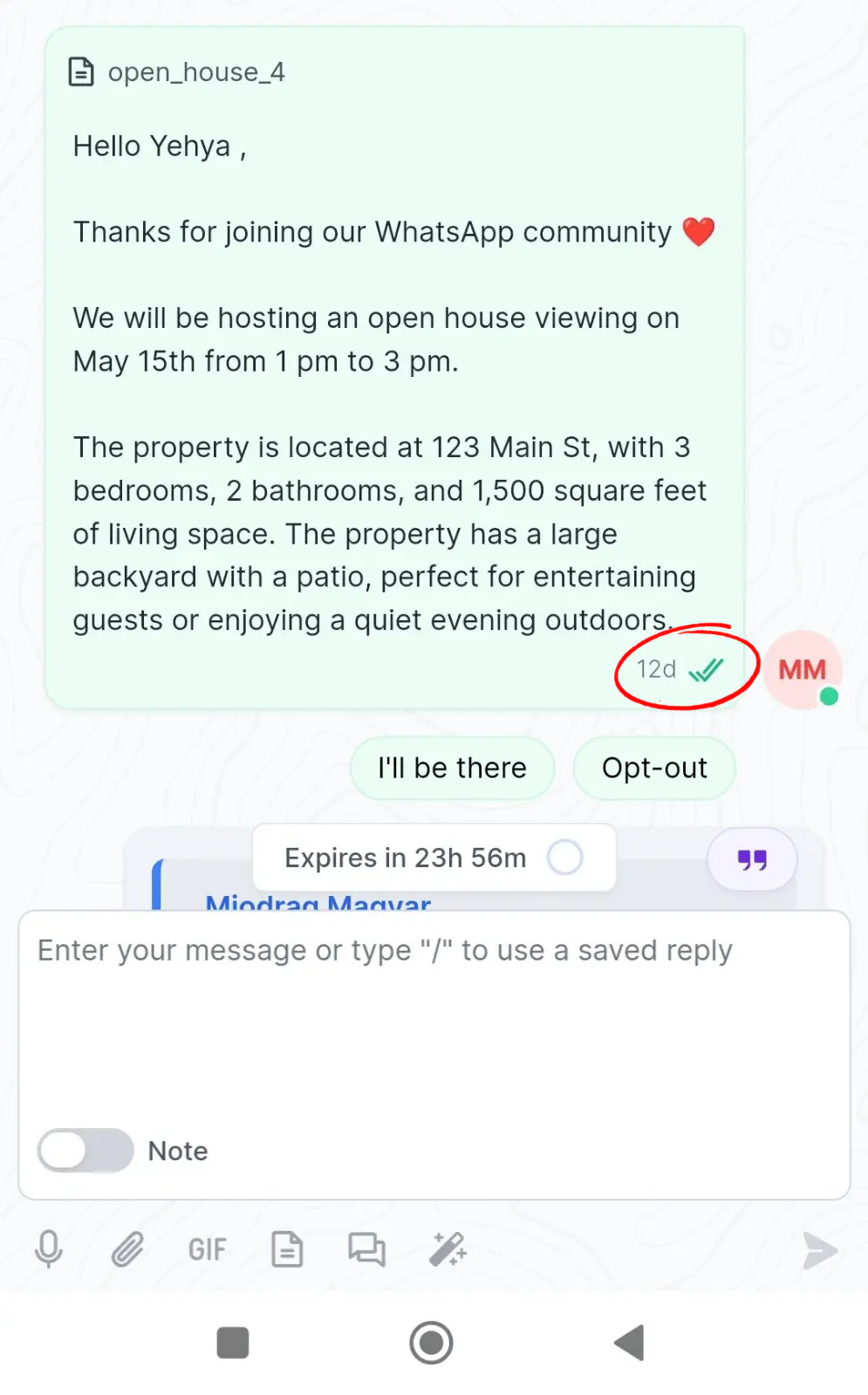
Security
WhatsApp boasts robust security features, including end-to-end encryption for messages. This means that messages are encrypted before being sent and can only be decrypted by the intended recipient, ensuring privacy and preventing unauthorized access. In contrast, SMS messages lack encryption, making them vulnerable to interception and unauthorized reading by anyone with access to the network.
Message length
SMS messages are limited to a mere 160 characters, which can be highly restrictive, especially when conveying detailed or lengthy information. In contrast, WhatsApp offers a generous character limit of 1024, allowing for more comprehensive and expressive messages.
Message splitting and costs
SMS messages exceeding the character limit of 160 will be split into separate messages, increasing costs. This fragmentation and associated costs can be burdensome for businesses relying on SMS for communication.
Regulations
To use WhatsApp for business purposes, organizations must comply with WhatsApp’s Business and Commerce policies, which may impose certain limitations or requirements on messaging practices.
Opt-in costs
WhatsApp opt-ins are more convenient than SMS opt-ins, as they don’t cost your customers money and can be collected from different platforms. SMS opt-ins require customers to send a text message with a keyword or code, with costs involved for the customer.
Conclusion
After an intense battle, we can safely say that WhatsApp Business has brought some serious competition to the messaging arena. With its cost-effectiveness, multimedia support, longer messages, worldwide reach, and the power of Rasayel, it’s hard to resist the allure of this messaging champion.
So, dear business owners, if you’re ready to level up your communication game, it’s time to embrace the power of WhatsApp Business and its shared Inbox tool, Rasayel. Get ready to engage your customers like never before and watch your business soar to new heights. The messaging world will never be the same again!
Remember, whether you choose WhatsApp or SMS, the most important thing is to connect with your customers and provide them with an exceptional experience. Happy messaging!
Learn more
If you’d like to learn more about how WhatsApp can help you grow your business, please reach out to us on WhatsApp at +13024070488.
We also offer a free consultation session where we review your use case, answer any questions about WhatsApp, and help you build a strategy to make the best out of the platform. Book a call with us here. We’d love to speak with you:
For Europe, the Middle East, and Africa

Yasser is a content editor and writer who enjoys exploring innovative tech ideas in B2B SaaS and writing about them.
When he’s not writing stories, you’ll find him gaming, traveling, binge watching some random series, or just relaxing by the beach in Alexandria.



